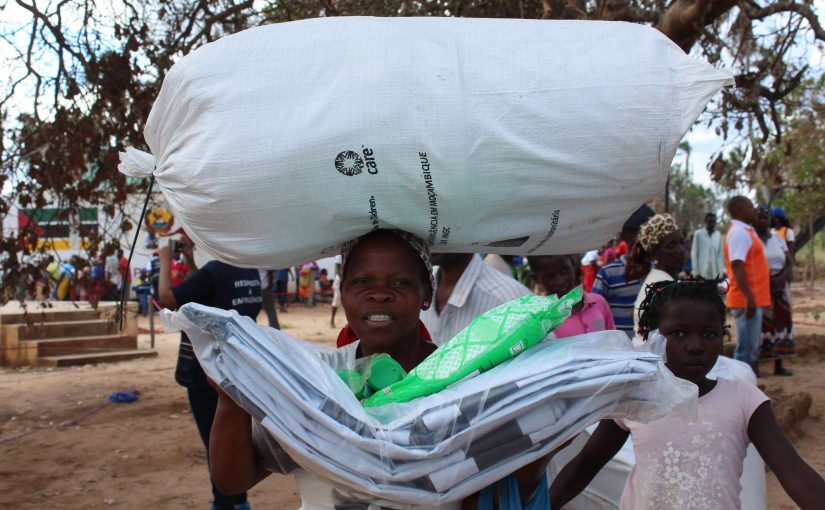Mozambique: Nigerian arrested in Maputo with 90 kg of suspected methamphetamine
CARE gears up to support Mozambique and Malawi as enormous cyclone threatens Southern Africa

When cyclone Dineo hit areas in southern Africa two years ago, CARE helped people with with emergency items including tarpaulins, blankets and mosquito nets. Preparing for cyclone Idai which is approaching, CARE is ready to support affected communities by assessing and addressing their needs.
CARE experts are working with the governments of Malawi and Mozambique to prepare for Cyclone Idai which is expected to make landfall tonight Thursday, March 14th.
Over the past five days, heavy rains and flooding across Malawi and Mozambique have already affected nearly 843,000 people and caused at least 60 deaths, according to preliminary reports from both countries.
“Cyclone Idai could be life-threatening for millions of people in Mozambique and Malawi,” warns Matthew Pickard, CARE Malawi’s country director. “CARE, together with other humanitarian organizations, is working with governments in both countries to help people prepare for the cyclone. For us, the protection of children, women and girls is a priority.”
One significant issue around the cyclone is that the coping capacity of the affected population is limited, due to the impact of previous week’s heavy rains and floods. “Although many have been moved from villages and other settlements to safer shelters, we are aware that there are still a lot of communities that need urgent support,” explains Pickard, stressing that “the immediate priority needs are shelter, water and sanitation facilities, food and health assistance.”
Idai is expected to make landfall near Beira, Mozambique’s fourth largest city with 530,000 residents, before midnight as an intense tropical cyclone. Preceding rains and floods over the past week led the president of Malawi to declare a state of disaster in affected areas. In Mozambique, Idai is expected to cause large-scale power and communications outages and shut down road and transport networks.
“Cyclone Idai could potentially become the most devastating cyclone to hit Mozambique in the past 10 years,” says Marc Nosbach, CARE Mozambique’s country director. “In a storm of this magnitude there is the potential for widespread damage to crops and livestock in the low-lying areas and houses could be destroyed. So, while we are preparing for the worst, we are praying that Idai loses intensity.”
In both Malawi and Mozambique, CARE is using internal emergency funds to respond to the evolving humanitarian needs. Additionally, the funding is used in Mozambique to deploy essential needed items as needed, such water sanitation materials. As part of the emergency response consortium (COSACA) that CARE is a member of, staff have already been responding to the floods disaster. More staff are available on standby for assessment and initial immediate response in the affected areas.












Leave a Reply
Be the First to Comment!
You must be logged in to post a comment.
You must be logged in to post a comment.